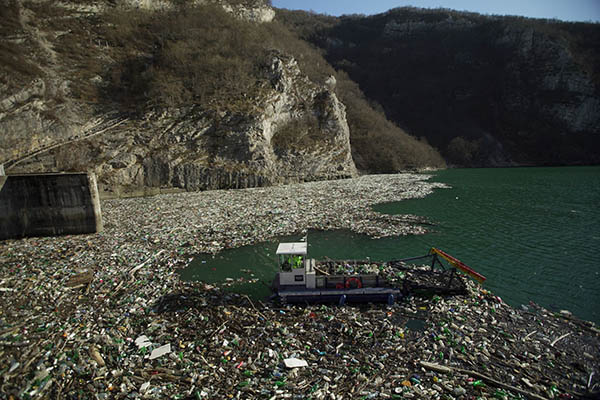As calls for action on climate change intensify, big brands in the KBB industry are playing their part in the fight to save the planet.
Hot on the heels of World Water Day (March 22), Roca has announced it is launching a new water efficiency plan.
In conjunction with Veolia Water Technologies Ibérica, Roca will be introducing two production processes for vitreous china and faucets at its Moroccan Settat plant and Eskisehir in Turkey, where it will carry out a pilot water usage monitoring scheme, the recommendations of which will subsequently be rolled out to the rest of its factories, with the ultimate goal of becoming water-neutral within five years.
The two pilot schemes, at plants located in two of the most water-stressed areas of the planet, will audit production processes.
The scheme is based on the Rs system – reuse, recycle, recover, regenerate, replenish and reduce fresh water consumption. It will involve avoiding the use fresh water when not strictly necessary, recycling it, digitising and controlling its use, segregating it, quantifying it and giving it a value, reusing it and adapting its quality to each particular use.
Vitreous china and faucet production are the processes that Roca has found require the greatest amount of water.
Meanwhile, Hansgrohe has pledged that by the end of 2022, all of its international sites will have switched to green power and achieve climate neutrality in terms of direct emissions and energy consumption.
The company’s electrical energy supply is based entirely on green power, achieving, it says, savings of over 26,000 tonnes of CO2. It is also requiring all of its ‘A suppliers’ to sign a Green Company Agreement showing their commitment to comply with environmental management requirements.
Hansgrohe has pledged to decarbonising the company and save water in its production, while converting its entire product portfolio, according to CEO Juergen Kalmbach, to water- and energy-saving products. He said: “Sustainability is not a sprint for us, but an extreme marathon that will literally make us fit for a liveable and economically successful future.”
Appliance company Electrolux meanwhile has taken steps to reduce its sea transport emissions by 15% in 2022.
To achieve this, is has teamed up with shipping companies Maersk and CMA CGM Group to use biofuel based on waste oils, such as cooking oils, and LNG for 25% of its total sea freight. The company also plans to halve its transport emissions by 2025.
Said Electrolux chief operating officer Carsten Franke: “These partnerships put Electrolux at the forefront in terms of the percentage of the total volume of products being transported in a more sustainable way. As we continuously contract increasing volumes of biofuel for sea transportation, we are also supporting the overall market development toward more sustainable practices for shipping goods across the world.”
And finally, Grohe has confirmed through a survey carried out by YouGov on its behalf, that more than half of European consumers want to contribute to a plastic-free world.
Fifty-four per cent of respondents said a new product should support them in cutting down on plastic usage in their daily lives – ahead of waste (53%) and saving energy (51%).
Grohe said that with kitchens the focal point of most households, kitchen studios are in a unique position to support consumers in their quest to reduce plastic usage by offering products such as the Grohe Blue, which provides chilled, filtered and carbonated water directly from the tap. This, said Grohe, could help a family of four avoid the use of 800 single-use plastic bottles a year.
Grohe also played its part in cleaning up the planet when for every Grohe Blue purchased August 1 and December 31 last year, it committed to collecting one kilo of waste with the help of Everwave’s CollectiX boat. The joint clean-up mission has removed a total of 30 tons of waste from the Bočac Reservoir in Bosnia and Herzegovina in February 2022 (pictured) – this equals the weight of over one million 1.5 litre PET bottles.
